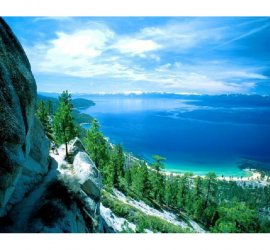NOAA: This year warmest on record so far
So far, this has been the hottest year in recorded history.
On Friday, the National Oceanic and Atmospheric Administration released new data showing that, from January to July, the average global temperature was 58.1 degrees. That was 1.22 degrees over the average from the 20th century, and the hottest since 1880, when reliable records begin.
And, while NOAA experts say global climate change isn't the only reason that 2010 has been so hot--an El Nino event earlier in the year pushed temperatures up--it's still the most important reason.
Post Carbon: NOAA: This year warmest on record so far - David A. Fahrenthold
So far, this has been the hottest year in recorded history.
On Friday, the National Oceanic and Atmospheric Administration released new data showing that, from January to July, the average global temperature was 58.1 degrees. That was 1.22 degrees over the average from the 20th century, and the hottest since 1880, when reliable records begin.
And, while NOAA experts say global climate change isn't the only reason that 2010 has been so hot--an El Nino event earlier in the year pushed temperatures up--it's still the most important reason.
Post Carbon: NOAA: This year warmest on record so far - David A. Fahrenthold




